I use Cloud Firestore and this is my data structure :
Firestore-root
|
--- collection (collection)
|
--- uid (document)
|
--- name: some_name
|
--- some_fields: some_data
|
--- origin: [origin_1, origine_2, ...] <- List
|
--- category: [category_1, category_2, ...] <- List
|
--- meals: [meals_1, meals_2, ...] <- List
|
--- some_other_filters: [.....] <- List
|
--- all_categories: [origin_1:true, origine_2:true, meals_1:true, ....]
I created the Map field all_categories to hold all different filters (origin, category, ...) so that I can perform queries easily like: if user select meals_4 and category_2, category_6 and some_other_filter I can do:
List<String> filters = getFilters();
query = recipeRepository.getUsersRecipeCollection()
.orderBy(sorted_filter, DESCENDING).limit(5);
for (String item: filters)
query = query.whereEqualTo("all_categories."+item, true);
query.get().addOnCompleteListener(...)
I cannot use the whereArrayContainsAny function since I need to get the exact items based on selected filters. What I need is something like "whereArrayContainsExactly.."
So, for example, if a user select 1, 2,.. or 25 different items from my filter page (like: category_1, meals_2, origin_1,... ), does it mean I need to create all 25 combinations of the composite indexes (through the link I get from the console) ? or I create 25 indexes of that map fields?
Second attempt:
I denormalised the data as following:
The collection that hold all the data:
The filter collections:
If I select meals_1 and origin_1, With whenAllSuccess I can get all document ids like the following:
Iterator<String> iterator = filters.iterator();
List<Task> tasks = new ArrayList<>();
while (iterator.hasNext()) {
String filter = iterator.next();
tasks.add(recipeRepository.getFilterCollection("filter_"+filter).get());
}
Tasks.whenAllSuccess(tasks.toArray(new Task[tasks.size()]))
.addOnSuccessListener(new OnSuccessListener<List<Object>>() {
@Override
public void onSuccess(List<Object> objects) {
if (!objects.isEmpty()) {
for (Object querySnapshot: objects) {
QuerySnapshot querySnap = (QuerySnapshot)querySnapshot;
for (DocumentSnapshot id: querySnap.getDocuments()) {
doc_ids.add(id.getId());
}
}
CollectionReference collectionReference = recipeRepository.getUsersRecipeCollection();
List<DocumentReference> listDocRef = new ArrayList<>();
for (String id: doc_ids) {
DocumentReference docRef = collectionReference.document(id);
listDocRef.add(docRef);
}
List<Task<DocumentSnapshot>> tasks = new ArrayList<>();
for (DocumentReference documentReference : listDocRef) {
Task<DocumentSnapshot> documentSnapshotTask = documentReference.get();
tasks.add(documentSnapshotTask);
}
Tasks.whenAllSuccess(tasks).addOnSuccessListener(new OnSuccessListener<List<Object>>() {
@Override
public void onSuccess(List<Object> list) {
Log.e(TAG, ">> list objects: " + list.size() + " data: " + list);
for (Object object : list) {
Recipes recipes = ((DocumentSnapshot) object).toObject(Recipes.class);
if (recipes == null) continue;
Log.e(TAG, ">> recipe name: " + recipes.getName());
}
}
});
}
}
});
With this I get all data containing meals_1 OR origin_1 (same result as using whereArrayContainsAny).
What I need is to get the list of docs ids that exists in both meals_1 and origin_1 collections.

